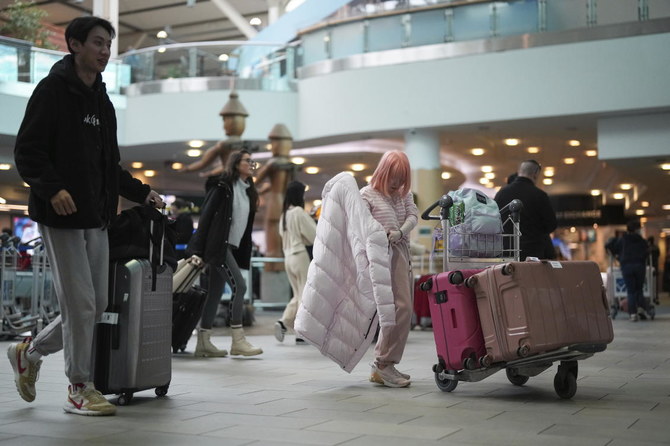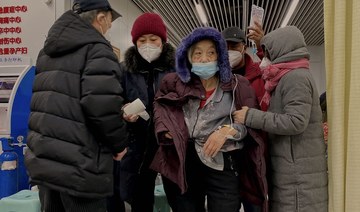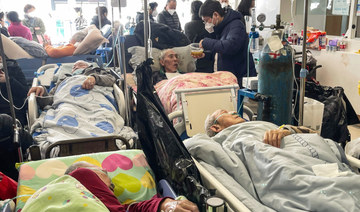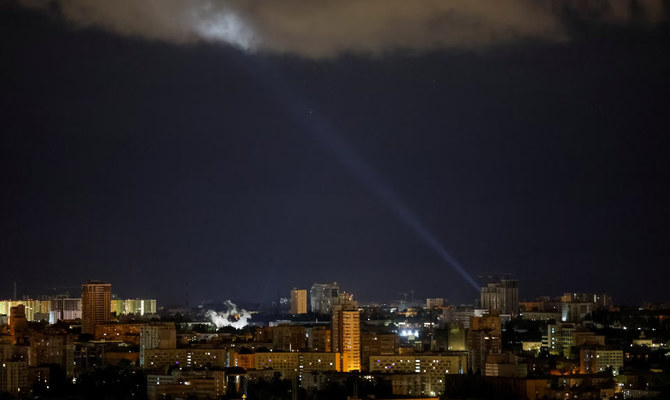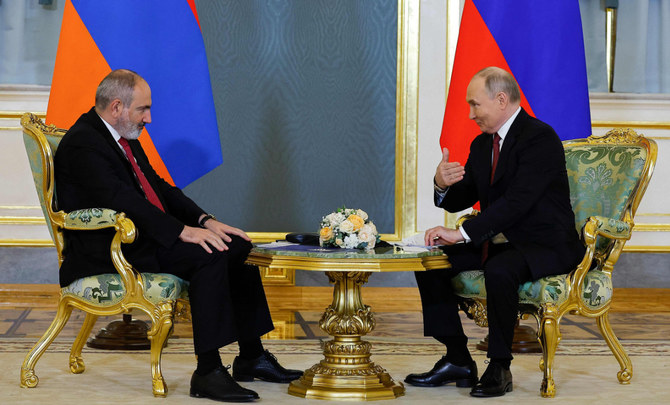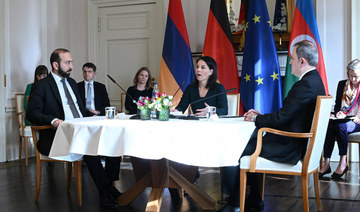BEIJING/SHANGHAI: China defended on Thursday its handling of its raging COVID-19 outbreak after US President Joe Biden voiced concern and the World Health Organization (WHO) said Beijing was under-reporting virus deaths.
The WHO’s emergencies director, Mike Ryan, said on Wednesday in some of the UN health agency’s most critical remarks to date, that Chinese officials were under-representing data on several fronts.
China scrapped its stringent COVID-19 controls last month after protests against them, abandoning a policy that had shielded its 1.4 billion population from the virus for three years.
Authorities around the world are imposing or considering curbs on travelers from China as COVID-19 cases there surged following its relaxation of “zero-COVID” rules. China has rejected criticism of its COVID-19 data.
PLACES IMPOSING CURBS
United states
The United States will impose mandatory COVID-19 tests on travelers from China beginning on Jan. 5. All air passengers aged two and older will require a negative result from a test no more than two days before departure from China, Hong Kong or Macau. The Centers for Disease Control and Prevention said US citizens should reconsider travel to China, Hong Kong and Macau.
EU
European Union government officials recommended on Wednesday that passengers flying from China to the EU should have a negative COVID-19 test before they board. They also suggested all passenger on flights to and from China should wear face masks, that EU governments introduce random testing of passengers arriving from China and that they test and sequence wastewater in airports with international flights and planes arriving from China.
Sweden
Sweden will require travelers from China to show they have tested negative for COVID before they can enter the country, the government said.
UK
The UK will require a pre-departure negative COVID-19 test for passengers from China as of Jan. 5, the Department of Health said on Friday. However, a report in The Independent on Monday said passengers from China who arrive in the United Kingdom next week will not face compulsory COVID-19 tests on arrival.
France
France will require travelers from China to provide a negative COVID test result less than 48 hours before departure. Starting Jan. 1, France will carry out random PCR COVID tests upon arrival on travelers coming from China, a government official told reporters.
France has urged all 26 other European Union member states to test Chinese travelers for COVID.
Australia
Travelers from China to Australia will need to submit a negative COVID-19 test from Jan. 5, Australian Health Minister Mark Butler said on Sunday.
India
The country has mandated a COVID-19 negative test report for travelers arriving from China, Hong Kong, Japan, South Korea, Singapore and Thailand. Passengers from those countries will be quarantined if they show symptoms or test positive.
Canada
Air travelers to Canada from China must test negative for COVID-19 no more than two days before departure, Ottawa said.
Japan
The country will require negative coronavirus test results within 72 hours of passengers boarding direct flights from China, the prime minister said on Jan 4. That is in addition to an existing regulation that passengers who had been in China in the seven days prior to their flight will be subject to a COVID-19 test on arrival in Japan. Those who test positive will be required to quarantine for seven days.
Italy
Italy has ordered COVID-19 antigen swabs and virus sequencing for all travelers from China. Milan’s main airport, Malpensa, has already started testing passengers arriving from Beijing and Shanghai.
Spain
Spain will require a negative COVID-19 test or a full course of vaccination against the disease upon arrival for travelers from China.
Malaysia
Malaysia will screen all inbound travelers for fever and test wastewater from aircraft arriving from China for COVID-19.
Taiwan
Taiwan’s Central Epidemic Command Center said all passengers on direct flights from China, as well as by boat at two offshore islands, will have to take PCR tests upon arrival, starting on Jan. 1.
South Korea
South Korea will require travelers from China, Macau and Hong Kong to provide negative COVID-19 test results before departure, health authorities said.
Morocco
Morocco will impose a ban on people arriving from China, whatever their nationality, from Jan. 3.
Qatar
Qatar will require travelers arriving from China from Jan. 3 to provide a negative COVID-19 test result taken within 48 hours of departure, state news agency QNA said.
Belguim
Belgium will test wastewater from planes arriving from China for new COVID-19 variants as part of new steps against the spread of the coronavirus, the government announced on Monday.
Israel
Newly appointed Health Minister Aryeh Deri announced new COVID-19 testing requirements for travelers from China, joining other nations imposing restrictions because of a surge of infections, according to the Times of Israel.
Places monitoring situation
Philippines
The Philippines sees a need to intensify monitoring and implementation of border controls for incoming individuals especially from China, Manila’s health ministry said.



